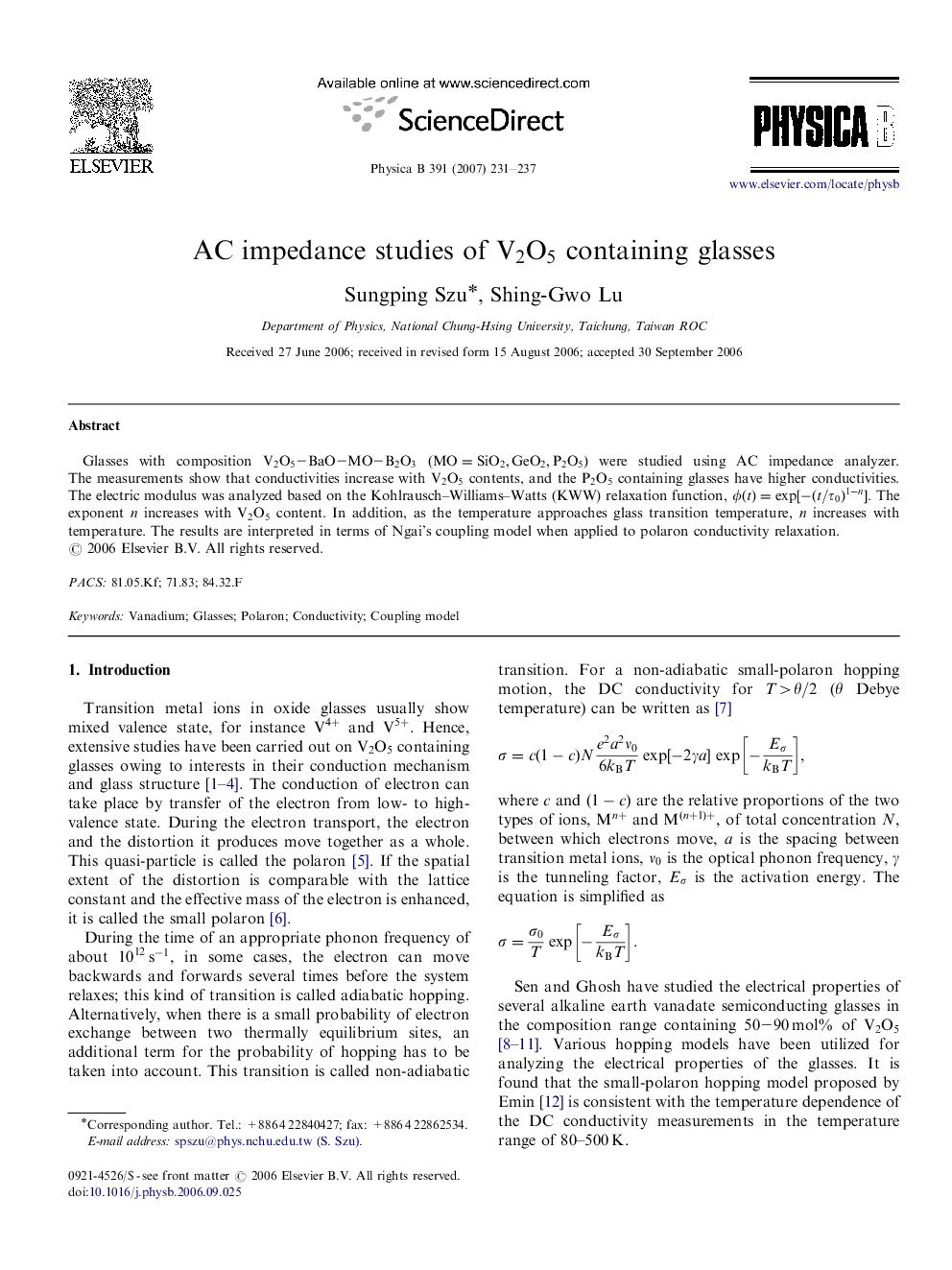| Article ID | Journal | Published Year | Pages | File Type |
|---|---|---|---|---|
| 1814896 | Physica B: Condensed Matter | 2007 | 7 Pages |
Abstract
Glasses with composition V2O5–BaO–MO–B2O3V2O5–BaO–MO–B2O3(MO=SiO2,GeO2,P2O5)(MO=SiO2,GeO2,P2O5) were studied using AC impedance analyzer. The measurements show that conductivities increase with V2O5V2O5 contents, and the P2O5P2O5 containing glasses have higher conductivities. The electric modulus was analyzed based on the Kohlrausch–Williams–Watts (KWW) relaxation function, φ(t)=exp[-(t/τ0)1-n]φ(t)=exp[-(t/τ0)1-n]. The exponent nn increases with V2O5V2O5 content. In addition, as the temperature approaches glass transition temperature, nn increases with temperature. The results are interpreted in terms of Ngai's coupling model when applied to polaron conductivity relaxation.
Related Topics
Physical Sciences and Engineering
Physics and Astronomy
Condensed Matter Physics
Authors
Sungping Szu, Shing-Gwo Lu,
